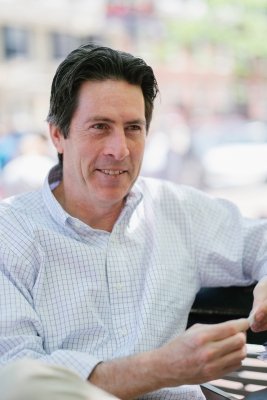 HSCI’s advisory board was assembled in 2010 to provide business counsel and outside perspectives to the growing Institute. Scott Malkin has been on the committee since its inception. He is the founder and chairman of SD Malkin Properties and the European and Chinese outlet village developer Value Retail, as well as a graduate of Harvard College, Harvard Business School, and Harvard Law School. He spoke with Stem Cell Lines about his continuing involvement:
HSCI’s advisory board was assembled in 2010 to provide business counsel and outside perspectives to the growing Institute. Scott Malkin has been on the committee since its inception. He is the founder and chairman of SD Malkin Properties and the European and Chinese outlet village developer Value Retail, as well as a graduate of Harvard College, Harvard Business School, and Harvard Law School. He spoke with Stem Cell Lines about his continuing involvement:
Q: Why HSCI?
Malkin: The notion that large institutions with extraordinary resources can also act in an innovative manner is really intriguing. It’s exciting to see outstanding human beings, residing within the institutional embrace, exhibit a healthy independence of thought and mind and come together as creative teams.
People can inhibit discovery by saying that teamwork is crucial and that the individual should not succeed at the expense of the institution; actually what we want to do is support individuals who have the courage to take risks and to think creatively. Innovation comes, in the end, from individuals working together successfully in teams. Orville and Wilbur Wright discovered flight at a time when there was a high-level, institutional initiative sponsored by the federal government working to do the same thing. The government never really got there, but these two guys on a sand dune figured it out by experimenting and by actually living the quest; and that’s certainly the feeling one has about HSCI today.
Q: Stem cell science is still a relatively young field. How do donors know that they
are making a worthwhile investment when they give to HSCI?
Malkin: I think donors to science, to their credit, are really focused on impact. They’re saying, “How do we invent solutions that will help people we know in our own lives?” I think it is all about creativity. As a philanthropist, you want to back the guys who discover new ways of finding solutions. They’re going to be the ones who “put a dent in the universe,” as Steve Jobs would say. An organization that announces that it’s going to cure a disease and then proceeds in a linear path does not guarantee better results. Harvard cannot pretend to be omniscient or insist upon specific outcomes. It would be a false claim. But what Harvard can do, and has done, is support innovative science by creating the greatest ecosystem of top scientific talent in the world, and then stir gently and see what happens.
Q: As we celebrate a decade of stem cell science, what do you hope to see from the HSCI in the next 10 years?
Malkin: I would like to see the pace of discovery rapidly accelerate. HSCI has already accomplished in 10 years well beyond what they thought they might achieve when I first met the team. This is because of high expectations and because of their embrace of the unknown.
My hope is that HSCI will inspire other organizations to break down barriers and approach science with this same level of enthusiasm and flexibility of thought and partnership. Any one accomplishment at HSCI benefits all of its Boston affiliates, and in turn benefits mankind.
Q: How does Harvard’s support of HSCI reflect a change in the University’s approach to sharing knowledge?
Malkin: To me, the fact that Harvard President Drew Faust, a social scientist and historian, can embrace the clarity of purpose and potential of HSCI means that Harvard as an institution has reached a tipping point regarding innovation.
It’s inevitable that the models of discovery being used at HSCI are going to move beyond just the natural sciences. That Harvard is actively cultivating openness and accepting input from other parts of the larger community is inspiring. This is an institution where a donor can have an impact, because you know that you’re backing a winning team.
